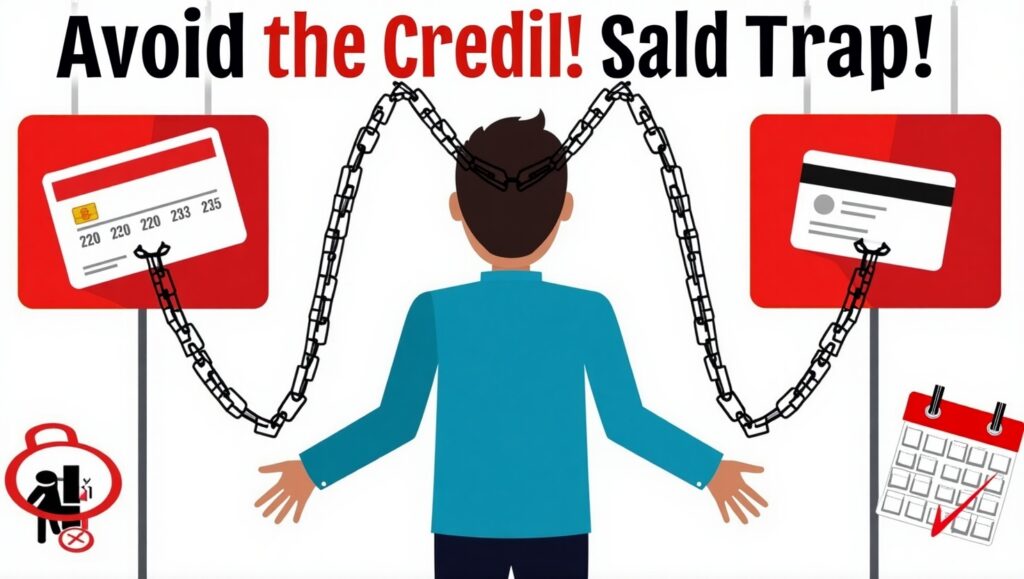Credit cards can be useful financial tools — if used wisely.
But for many people, they become a debt trap that leads to high interest, stress, and financial instability.
Here’s how to avoid falling into that trap and use credit cards smartly and safely.
⚠️ What is a Credit Card Debt Trap?
A credit card debt trap happens when you keep spending more than you can repay, and your balance keeps growing due to high interest rates (often 30%+ annually).
Eventually, you’re stuck paying only the minimum — and your debt never seems to go down.
🚫 Top Mistakes That Lead to the Trap
- Paying Only the Minimum Balance
➤ This stretches your debt over years and increases total interest paid. - Impulse Buying
➤ Using your card for unnecessary purchases. - Carrying Multiple Cards With Balances
➤ Leads to confusion, missed payments, and more interest. - Ignoring Due Dates
➤ Late fees + interest = financial disaster.
✅ How to Avoid the Credit Card Debt Trap
1️⃣ Treat Your Card Like Cash
Only spend what you can afford to pay off in full by the due date.
If you can’t, don’t swipe it.
2️⃣ Pay the Full Balance Every Month
Avoid interest charges completely by paying your full bill each month.
Don’t fall for the “minimum payment” trap.
3️⃣ Set Spending Limits
Use apps or bank settings to cap your credit card usage.
Stick to a fixed monthly budget.
4️⃣ Track Your Spending
Use tools like Mint, YNAB, or even a Google Sheet to monitor every transaction.
Awareness is the first step to control.
5️⃣ Avoid Cash Advances
Never use your credit card to withdraw cash — it has extra fees and high interest from day one.
6️⃣ Negotiate Interest Rates
If you have a good payment history, call your bank and ask for a lower interest rate.
Many banks agree — but you have to ask.
7️⃣ Use One or Two Cards Only
Don’t collect multiple cards unless you can manage them properly.
More cards = more temptation.
🛠️ If You’re Already in Debt…
- Stop using the card immediately
- Create a payoff plan: Snowball or avalanche method
- Consider balance transfer offers (0% for 12–18 months)
- Seek credit counseling if needed
✅ Final Thoughts
Credit cards are tools — not free money.
Use them wisely, and they can build your credit and offer rewards.
Use them carelessly, and they can damage your financial future.
💬 Control your card — don’t let it control you.


